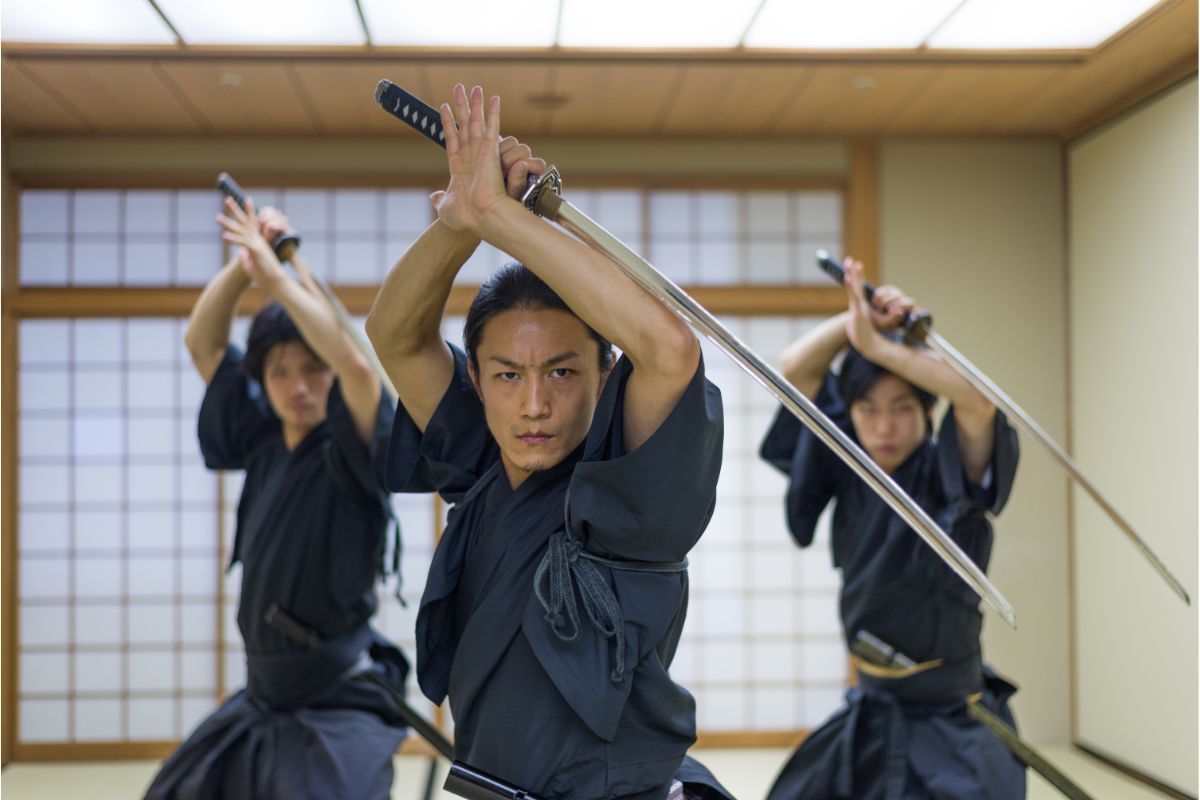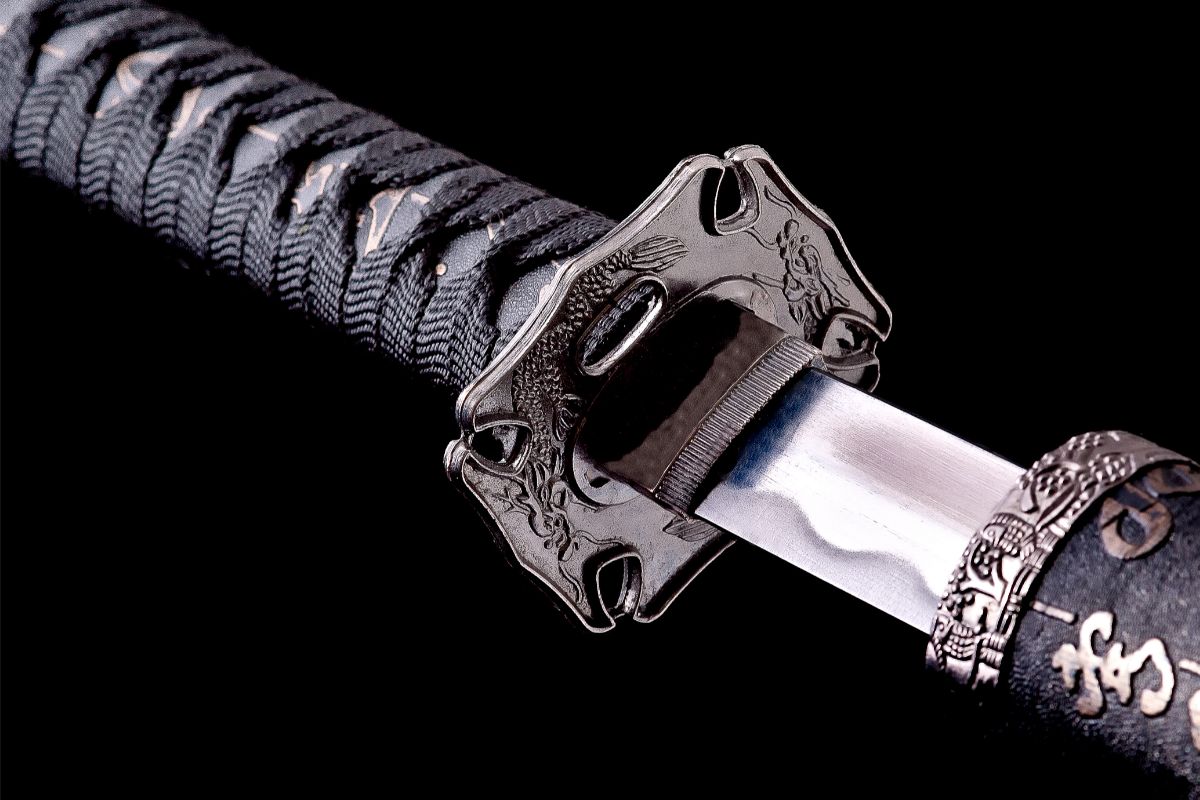Have you ever watched a Samurai movie and developed a fascination with them? We certainly have! These historical figures just seem cool and slick. Intimately linked with the history of Japan, Samurai have been around for centuries.
Samurais have indelibly marked culture, resulting in there being loads of films and television shows that depict them in their glory.

But do Samurai still exist nowadays? Could samurais be seen in modern-day Japan? Click here to find out.
What Is A Samurai?
In the days of Feudal Japan, Samurai were members of the military nobility. They were around from the 12th century. They became rather powerful during this period and existed until the 17th century, known as the Edo Period.
They were faithful to the Japanese nobility.
Samurai were renowned for their military prowess, having great knowledge of tactics. For instance, Samurai warriors had the honor of using two swords, known as daishō.
These swords are a combination of long and short swords. These warriors were encouraged to develop characteristics, such as loyalty.
They occupied a high social position and were classed as nobility. As a result, samurai warriors experienced perks from this profession.
Samurai warriors are also known for their distinctive suits of armor. These suits of armor were not only protective, but they also featured elaborate designs. The helmets were particularly intricate.
These suits would be handcrafted. Leather and scales, usually constructed from iron, formed the majority of these protective suits. Many remaining samurai suits of armor are safely stored in museums.
Are There Still Samurai Today?
No, samurai warriors do not still exist in modern times. This is because there is essentially no use for them. On the other hand, samurai culture continues to exist. They continue to be some of the most recognizable figures in culture.
A large part of why samurai culture still exists in Japan is because many of the descendants of these warriors still live. When they existed, samurai warriors were hereditary.
This means that they passed from one member of the family to another. Thus, people inherited the status of being a samurai without having to earn it.
These descendants have continued the legacy of culture. Yet, most people who descend from samurais do not classify themselves as warriors. Instead, the majority of them lead normal lives and have everyday jobs.
Samurai warriors could not exist in current times because it is against the law to carry a sword in modern Japan unless you have a specific permit. Moreover, the more peaceful society that Japan has cultivated does not call for samurais.
What Happened To The Samurais?
Samurais started to lose power and influence during the 1870s. During this period, the number of samurai still in existence was small. The Meiji government sought to stabilize Japan’s class system.
Thus, they wanted samurais to no longer be their own class system, but to instead make them part of the professional class.
This resulted in samurais becoming bureaucrats, a far cry from their warrior days. The samurai became known as Shizoku, a class that suited their new status.
The disappearance of the samurai was taken one step further when it was made illegal for them to carry swords, such as katanas. Samurai were given lots of money for these life changes.
Despite this, not everyone was happy with the governmental changes and abolition of the samurai. Some dissatisfied people participated in a samurai rebellion during the late 1870s. However, these rebellions proved to be incredibly ineffective. They were easily quelled by the army and the leader of many of these rebellions, an influential samurai called Saigō Takamori, later died. This marked the end of the samurai.
How Has Samurai Culture Survived?
The legacy of samurai culture can be seen in lots of different places.
One such example is film and television. Lots of different pieces of cinema have depicted the samurai, both in the East and West. For Instance, Zatoichi is a popular Japanese samurai who appears in a film series of the same name.
Furthermore, samurais have influenced western film series, such as Star Wars. Jedi knights were inspired by samurai warriors.
Samurais are also portrayed in many other forms of culture, including art, anime, and theatre. For example, Samurai Champloo is a Japanese anime that focuses on Samurai culture. In doing so, it mixes the past with the modern.
Moreover, there are many museums dedicated to the history of samurais. The Samurai Museum in Shinjuku City is an excellent example of this. Here, you can find out everything that you need to know about samurai.
You can also visit the Kyoto Samurai and Ninja Museum for a similarly sensational samurai experience.
Frequently Asked Questions
Could Anyone Become a Samurai?
When samurais first emerged, anyone with military skills could become a samurai. This included peasants. However, once samurais became their own social class, it was difficult to become one.
Essentially, you had to be born into a samurai family, since the position was hereditary.
Could Women Be Samurai?
Though it rarely happened, some women managed to become samurai. As a masculine term, samurai does not often apply to women. Instead, the term Onna-Musha, better fits these warrior women.
Their skills and training were similar to that of a male samurai.
What Weapons Were Used By Samurais?
Samurais could yield a wide array of weapons. After all, they were trained to be highly effective combatants. Among the weapons commonly used by samurais include:
- Katanas
- Knives (tanto)
- Short swords (wakizashi)
- Bows and arrows
Final Thoughts
While it is a shame that such awesome figures from history no longer exist, it is easy to see why samurai warriors would not fit into modern society. After all, what place would warriors with swords and suits of armor be a good fit with modern times?
Plus, with the invention of more technological weapons, samurai would likely have outdated military skills.
Yet, this culture still has a strong legacy. While you may not want to admit it, many people have fantasized about becoming a samurai!
- 16 Best Websites To Watch Japanese Movies With English Subtitles - May 11, 2023
- Is ZIPAIR The Best Airline For Traveling To Japan? - May 11, 2023
- Ryu Murakami Vs Haruki Murakami – Which One Should You Read? - May 11, 2023








